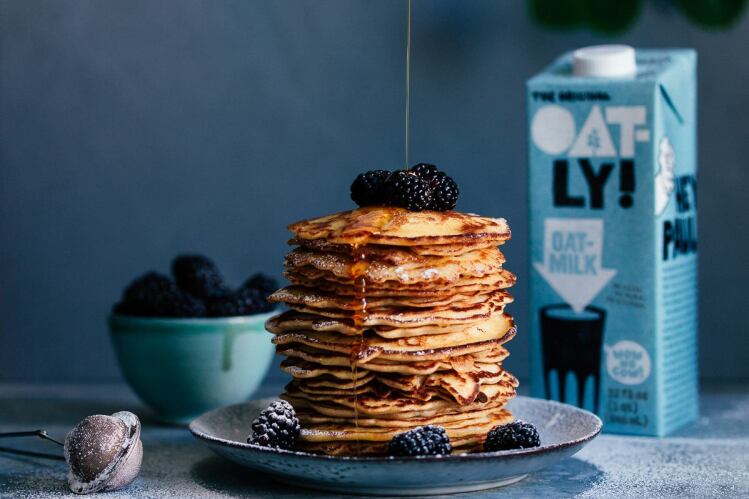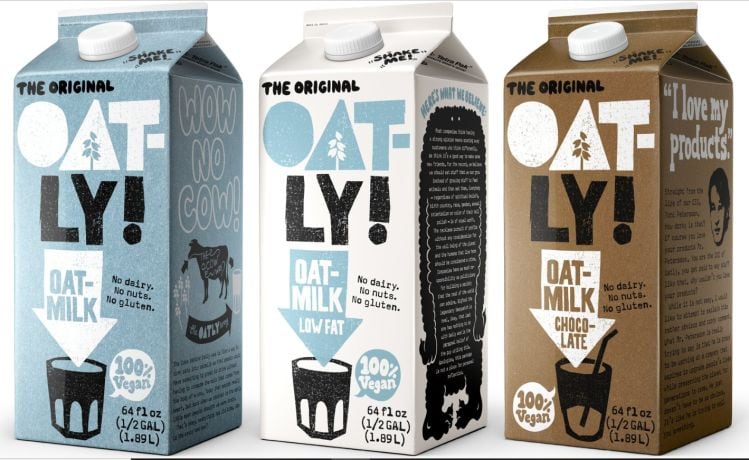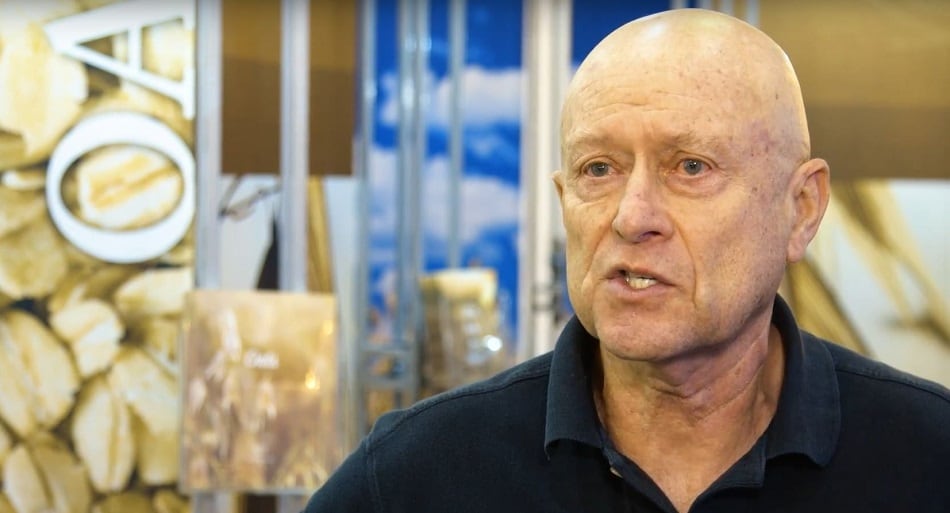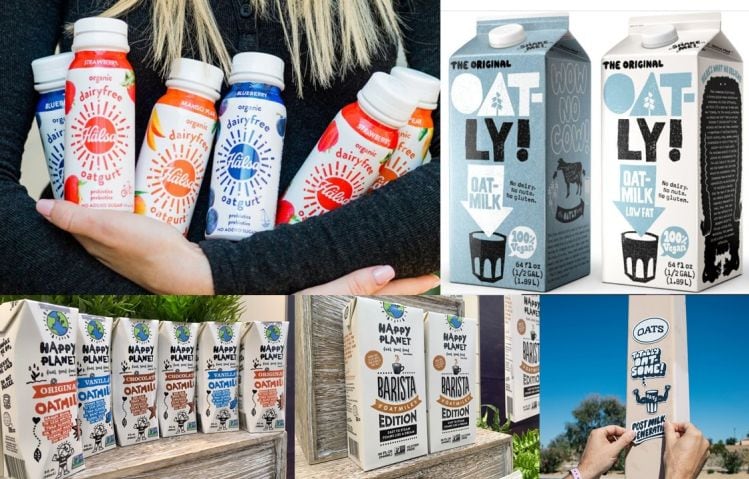While Oatly doesn’t add any sugar or sweeteners to its oatmilk, all 7g of sugar derived from its oat-base will in future be listed as added sugar in accordance with guidance issued by the FDA in November 2018 on how to comply with the new-look Nutrition Facts panel, an Oatly spokeswoman told FoodNavigator-USA.
“Our goal with labeling, as always, is to make it easy for customers to understand what’s in our products. As such, we have been in touch with the FDA to ensure we’re compliant with this additional guidance, and will be rolling out the label change in accordance with their implementation guideline [deadline: Jan 2020 for companies with food/bev revenues topping $10m, Jan 2021 for smaller companies].”
As we reported last month, Oatly has also voluntarily agreed to stop using the term ‘no added sugar’ in ad campaigns.
Kyle Marancos, director of marketing at Happy Planet, which has also historically listed its oatmilk as having 0g added sugar, said the brand would also be updating its labels: "We will make some minor updates to Happy Planet's Oatmilk packaging based on the new regulations that will be coming into effect."
FDA: ‘This guidance applies to all sugars created through controlled hydrolysis’
On the face of it, these label changes might seem odd or even unfair, given that most oatmilk brands do not add sugar to their products, and thought they were therefore accurately listing 0g of added sugar on the Nutrition Facts Panel.
Owing to the way some brands make their oat base, however, they may effectively be creating sugars via hydrolysis (Oatly for example treats its oat and water base with enzymes that break oat starch down into simpler sugars, primarily maltose and glucose), an FDA spokesperson told FoodNavigator-USA.
“In our Nutrition Facts Label Q&A guidance issued in November 2018, we addressed sugars created through processes such as hydrolysis.
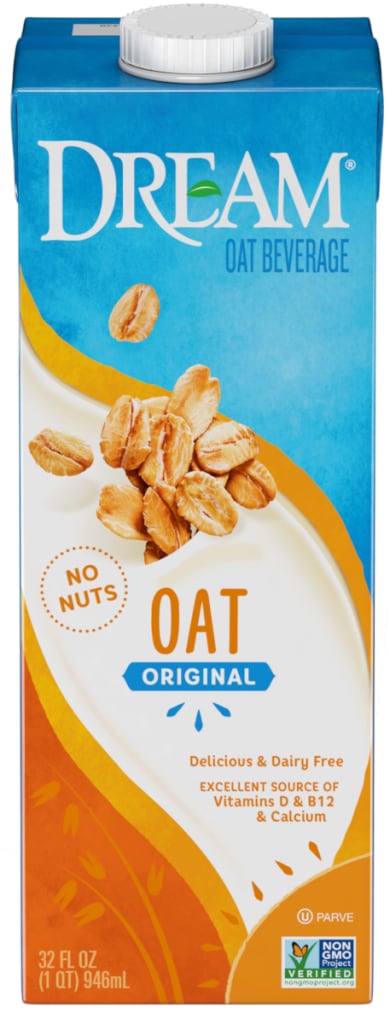
“When an ingredient containing mono- and disaccharides that are created through controlled hydrolysis (e.g. maltodextrin or corn syrup) is added to a food during processing, those mono- and disaccharides contributed by the ingredient need to be declared as added sugars on the label (21 CFR 101.9(c)(9)(iii).’
"This guidance applies to all sugars created through controlled hydrolysis. Therefore, if all of the sugars in a product [eg. oatmilk] are created through controlled hydrolysis, our current thinking is that all of those sugars should be declared as added sugars on the label."
Pacific Foods: ‘All the naturally occurring sugars in the final product are considered ‘added sugars’ according to the new guidelines’
While some brands such as Oatly will be updating labels to comply with the FDA’s guidance, others have listed all the oat-based sugars in their oatmilk as ‘added sugar’ from the beginning.
Dream Oat Beverage original for example, lists all 11g of sugar in its product as 'added sugars,’ while Pacific Foods – which recently took issue with Oatly’s ‘no added sugar’ claims on ad campaigns – said it labels all of its sugars as ‘added’ in accordance with the new rules.
"All oats in an oat beverage are processed, therefore all the naturally occurring sugars in the final product are considered ‘added sugars’ according to the new guidelines,” said a spokeswoman.
FoodNavigator-USA will be updating this article with comments from other oatmilk brands as they come in.
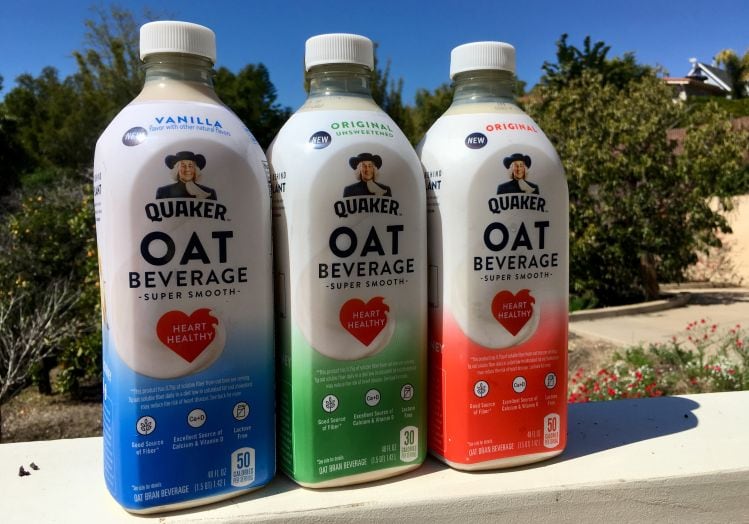
Sugar levels per 240ml serving of popular oatmilk brands vary incredibly widely, ranging from 0g to 17g per 240ml serving (to put this into perspective, dairy milk naturally contains 13 sugar per serving).
Pacific Foods has 17g, Dream Oat Beverage has 11g, Oatly Original has 7g, Happy Planet Original has 5g, Silk Oat Yeah and Planet Oat have 4g, and Califia Farms’ unsweetened oatmilk has 2g, while Quaker Oat Beverage, (which uses oat bran concentrate as its core ingredient) contains zero sugar.
Some of these brands may use more oats than others, but the discrepancies are mainly due to the way the oats are processed.
Most brands do not reveal their processes, with the exception of Oatly, which says it has always been “pretty open about our own process” whereby it treats its oat and water base with enzymes that break oat starch down into simpler sugars, primarily maltose and glucose. It then filters out some of the protein and insoluble fiber [but keeps the beta glucan] via a centrifuge to make a smoother, sweeter base for its oatmilk.

